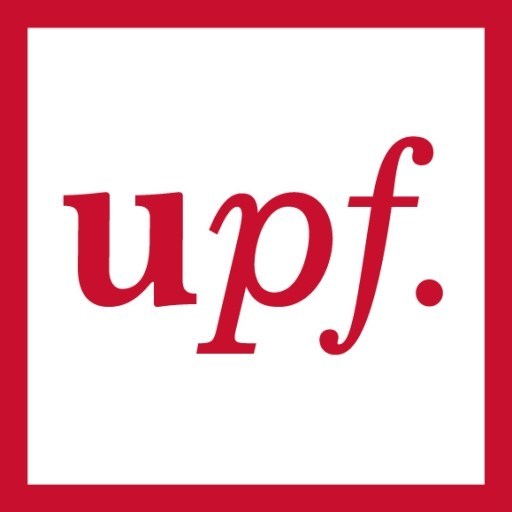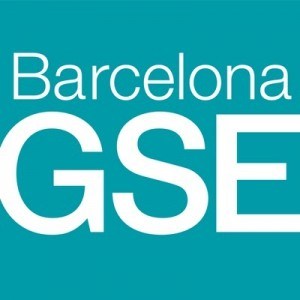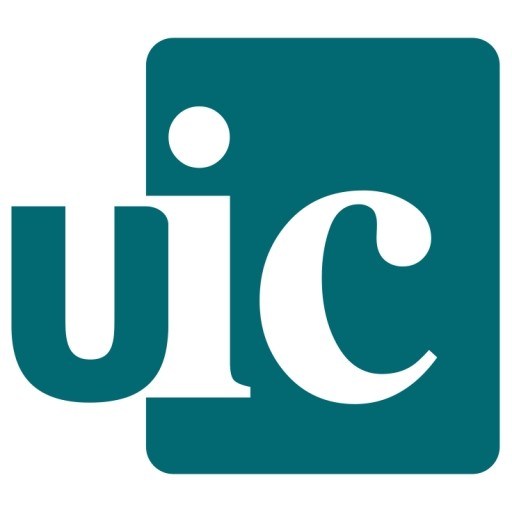Photos of university
The Master's Degree in Sound and Music Computing at Pompeu Fabra University offers a comprehensive and interdisciplinary education designed to equip students with both theoretical knowledge and practical skills in the fields of sound design, music technology, digital signal processing, and interactive music systems. This program focuses on the exploration of the technological and artistic aspects of sound and music, preparing graduates for careers in multimedia, audio development, music production, and research.
Throughout the course, students engage with cutting-edge topics such as digital signal processing, audiovisual interfaces, sound synthesis, and computational music analysis. The curriculum combines advanced coursework with hands-on projects, encouraging students to develop creative applications of technology in music and sound design. The program emphasizes innovation, fostering skills in software development, music composition using digital tools, and the integration of acoustic and electronic music.
Faculty members are actively involved in research and industry collaborations, providing students with opportunities to participate in real-world projects and internships. The program also offers optional specialization tracks, allowing students to tailor their studies to areas of personal and professional interest, such as music information retrieval, sound design for multimedia, or interactive systems.
Graduates of the Sound and Music Computing master's program are well-prepared for diverse career paths, including roles in multimedia companies, game development, film and television sound design, research institutions, and academia. They also possess the skills needed for innovative entrepreneurial ventures in the rapidly expanding digital music and sound industry.
In addition to technical expertise, students develop critical thinking and creative problem-solving skills, enabling them to contribute to the development of new sound technologies and artistic expressions. With state-of-the-art laboratories and participation in ongoing research projects, students are supported throughout their academic journey to achieve their professional and artistic goals. Upon graduation, students are expected to be capable of conducting independent research, developing novel sound and music applications, and pushing the boundaries of what is possible in the intersection of technology and music.
Core Courses (5 ECTS each)
- Audio Signal Processing for Music Applications: Covers signal processing methodologies and technologies specific for audio and music applications. Special emphasis is given to the use of spectral processing techniques for the description and transformation of sound and music signals. [web]
- Music Information Retrieval: This course provides a survey of the field of Music Information Retrieval (MIR), with a special emphasis on techniques for audio content description in terms of different facets (e.g. melody, harmony, rhythm, timbre), temporal scopes and abstraction levels. We also study methods for music context description and current work on user analysis and modeling, addressing the recent trend towards user-centric and adaptive approaches and systems. We also examine how various MIR approaches are evaluated and discuss about the major open challenges in the field. [web]
- Music Perception and Cognition: Goes over the principles, structures and functions that make possible humans to perceive and understand sound and music, presented from empirical and computational point of view. The psychophysics of the transduction, the neural encoding of the acoustic input, the perceptual organization of audio streams, musical memory, melodic, rhythmic and tonal cognition, emotion and music, and the development and learning of musical capabilities. [web]
- Real-time Interaction: Starts by analyzing the concepts of "interaction", "interactivity" and "real-time" from a general purpose perspective, studying both the human and the technical aspects. Then it concentrates on real-time music applications, giving a special emphasis to the study and the possibilities of mapping techniques. Practical examples are implemented and evaluated using the Pure Data programming language and the sensing capabilities of smartphones and mobile devices. [web]
- Research Methods: Reviews of the graduate studies research context, skills and methodologies, introducing the essential aspects in research proposal writing and research reporting. [web]
Optional Courses (5 ECTS each)
- Advanced Topics in SMC: Seminar covering core methodological and application topics of relevance to Sound and Music Computing. [web]
- Audio and Music Processing Lab: State-of-the-art methods and tools for the automatic processing (focusing on its generation and transformation) of music content. [web]
- Music Recording and Mixing: Theoretical and practical examination of the most usual microphonic and multitrack recording techniques, the audio processing techniques that are used in a musical recording, and the technical and practical problems that need to be addressed in mixing. [web]
- Linear and Nonlinear Time Series Analysis: After introducing the relevant theoretical concepts of dynamic systems, the course presents the underlying theoretical principles of linear time series analysis, nonlinear time series analysis and the concept of surrogates.
- Advanced Interface Design: Paradigms, methods and tools used in construction of complex multimodal interfaces between people and artefacts. [web]
- Systems Design, Integration and Control: Paradigms within design, integration and control of truly feasible complex systems, with a special stress on neuromorphic principles underlying biological, interactive, cognitive and emotive systems. [web]
- Research Seminar: Weekly research seminars with presentations related to the research in Information and Communication Technologies. [list of seminars]
- Web Intelligence: Study how to gather, process, search and mine data in the Web and its applications to search engines. Understand the basic concepts behind information retrieval and data mining. [web]
- Natural Language Interaction: The subject covers central themes related to interaction with intelligent agents through natural language. The approach will be built on models of written dialog, analysis and generation of natural language, and implementations. [web]
- Cognitive Science and Psychology: Mind, Brain and Behaviour: The seven central disciplines that form traditional cognitive science, showing how the concepts and paradigms of these disciplines bring complementary visions of mind, brain and behaviour. [web]
- Machine Learning: The course covers the theory, definition, and implementation of various machine learning methods and algorithms. These are algorithms that generalize from labeled or unlabelled examples. [web]
Thesis Project
- Research Project (20 ECTS): Carry out a research project and write a thesis report under the supervision of a teacher. Includes a weekly class to present and discuss relevant topics to help decide, develop and present the individual thesis work.
Complementary Courses
- Courses from the undergraduate programs in engineering of the Polytechnic School covering topics such as: Audio Signal Processing, Software Engineering, Data Structures, Software Programming, Artificial Intelligence, Music Technology, Mathematics, and Interactive Systems (many undergraduate courses are taught in Spanish or Catalan).
Requirements
- Official undergraduate degree/diploma (or a bachelor's degree, a degree in engineering or architecture, diplomas, technical engineering and technical architecture diplomas, or, for foreign qualifications, the equivalent qualification awarded by an accredited higher education institution) and the academic transcript of the accredited official training with the average grade at the university of origin. Degrees in any academic field of study will be accepted.
- Curriculum Vitae in English.
- A letter of motivation in English, stating the candidate's interest in following the master's programme (400 to 600 words).
- At least one letter of recommendation (academic).
- Identity Card or Passport.
- Proof of English language (level B2). English: official Cambridge certificates (FCE or higher), with results of 6.0 at IELTS or 100 at TOEFL (iBT), will be accepted, among others.
Scholarships
- GRAL - General scholarships for students enrolled on post-compulsory studies.
- MATRC - Financial credential for the purposes of processing university enrolments without prior payment of the public prices for the academic services.
- UPF - Tuition fee scholarship for university master's degree students
- Global Education
The Sound and Music Computing program at Pompeu Fabra University offers a comprehensive education in the interdisciplinary field that combines music, sound engineering, computer science, and digital arts. Designed to prepare students for careers in innovative sound design, music technology, and audio-related research, the program emphasizes both theoretical foundations and practical skills. Students engage with cutting-edge technologies such as digital signal processing, interactive multimedia systems, and artificial intelligence applied to sound and music. The curriculum covers diverse topics, including acoustic signal analysis, music information retrieval, sound synthesis, and human-computer interaction for musical interfaces. Students have access to state-of-the-art laboratories equipped with advanced audio processing hardware and software tools, which enable hands-on experimentation and project development. The program also promotes collaboration with industry partners and research institutions, providing opportunities for internships and collaborative projects that enhance employability and innovation. Graduates of the program are equipped to work in various domains, including music production, game audio, virtual reality, sound design for multimedia, and academic research. The university’s vibrant research community fosters an environment of creativity and scientific inquiry, encouraging students to participate in conferences, workshops, and published research. Moreover, the program emphasizes ethical and social considerations in sound and music computing, preparing students to contribute responsibly to technological advancements. The faculty comprises experts with extensive experience in both academia and industry, ensuring that students receive a balanced education aligned with current trends and future developments in the field. Overall, the Sound and Music Computing program at Pompeu Fabra University offers a stimulating and dynamic environment for aspiring sound and music technologists committed to innovation and excellence in their field.





